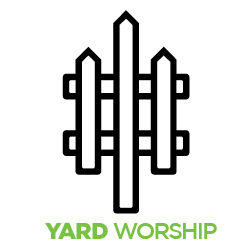CURB APPEAL IN WINTER
How To Make A Kitchen Utensil Holder From A Repurposed Cutting Board
The post How To Make A Kitchen Utensil Holder From A Repurposed Cutting Board appeared first on Homedit.
Not sure what your next DIY project should be? how about something small, a little accessory for the kitchen or for the dining area This little utensil holder is easy to put together and doesn’t require too many materials or tools. It can also be customized in lots and lots of different ways and it’s…



Materials you’ll need to build a kitchen utensil holder:
- Cutting board
- patterned fabric
- pin
- silk ribbon
- grey acrylic paint
- paint brush
- hammer
- scissors
- hot glue
How to build the kitchen utensil holder:
Step 1: Make sure you have everything you need


Step 2: Paint the cutting board
Cut the ends of the ribbon at a slight angle when making the bow. With the first piece make two loops that cross each other and meet in the middle, like an infinity symbol. With the other piece tie a knot around the middle of the two loops and cut off the excess.





The idea here is to use the fabric to make a little pocket that you can then attach onto the front of the cutting board. It doesn’t need to be very big so measure it and figure out how much you need to cut from each side.
Step 3: Measure and cut the fabric





Do the same thing for the bottom edge of the fabric as well. The top can be left as it is.


The post How To Make A Kitchen Utensil Holder From A Repurposed Cutting Board appeared first on Homedit.
Step 4: Glue the seams
Make sure to paint the front, back and all the edges. You don’t want to miss any spots and a thin paintbrush is probably best because it gives you more dexterity.









Step 5: Secure the fabric onto the board with thumbtacks
Your cutting board should have a little hole at the top so it can be hanged. Run a piece of ribbon through that hole, make a loop and tie it with a knot. Cut off the excess ribbon. Now you can properly hang your new kitchen utensil holder and it will look lovely.


Take your fabric, align it to one of the edges of the cutting board making sure to fold it inwards. Then start adding the thumbtacks. You’ll need a hammer to push them into the wood through the fabric. Start from one of the corners and make sure your fabric doesn’t move as you continue to add more thumbtacks all along the edge.

Not sure what your next DIY project should be? how about something small, a little accessory for the kitchen or for the dining area This little utensil holder is easy to put together and doesn’t require too many materials or tools. It can also be customized in lots and lots of different ways and it’s a fun project overall.

Step 6: Continue with the other side and the bottom
This is a no-sew project so instead of using a needle and thread or a sewing machine you can just use the hot glue gun instead. Apply thin lines of glue to the underside of the fabric along the edges and fold them one and then once more to make the seams.

Put a little dab of glue on the fabric and place the little bow on top. Press it gently so it adheres to the fabric.



When both sides are done, all that’s left is the bottom. Add a few more thumbtacks down there and make sure to not leave big gaps between them.
Use the same type of ribbon for the little bow and this loop to keep the design simple. You don’t want these little details to draw too much attention or to clash with the fabric so pick a neutral color like beige or ivory.
Step 7: Make a little bow







First things first: paint the cutting board white. This will give you a nice and clean surface to work with later on. The white acrylic paint is easy to work with and very versatile. You might have some left over from previous projects.
Take two pieces of ribbon and make a little bow. The color of the ribbon should go nicely with the fabric that you’ve used and with the white cutting board base as well.



Start with one of the longer edges, then do the same thing for the other one. You only need a thin line of glue for each side.
Step 8: Add a hanging loop at the top
When you’re done with the first side, fold the fabric once more on the opposite edge and repeat the process. Try to space out the thumbtacks evenly and to use the same number on each side.
Fold the edge a bit and place it onto the cutting board so you can see how well it fits and whether the fabric piece is small enough.Don’t make it too small either. Leave a bit of extra fabric on the sides so you can fold it and give a bit of flexibility for the pocket.
Since this project requires a few materials that you might not normally use for other crafts, take some time to make sure you have everything. The hammer is important and any small one would do. The fabric also plays an important role in this project so pick a type that you really like.










